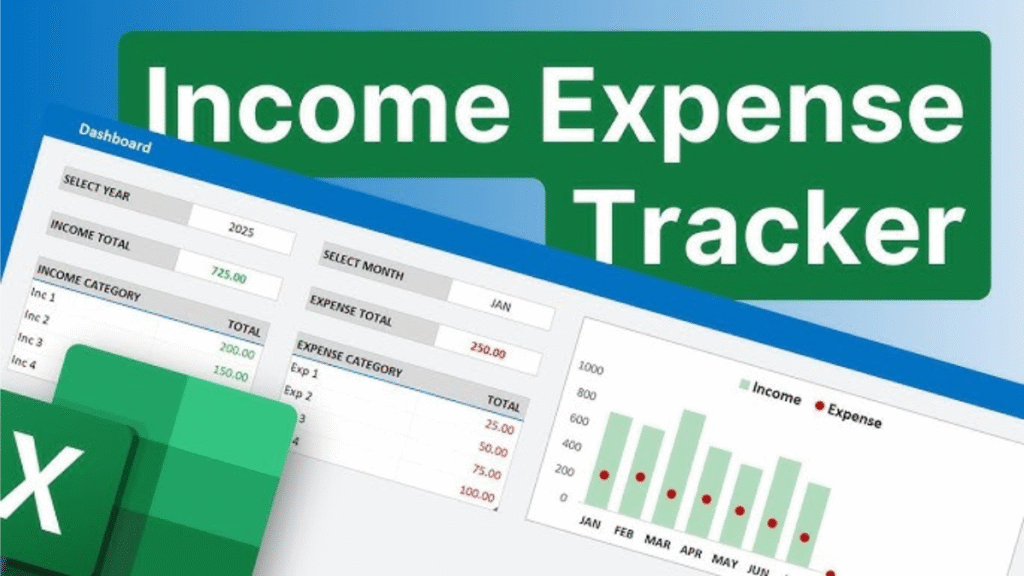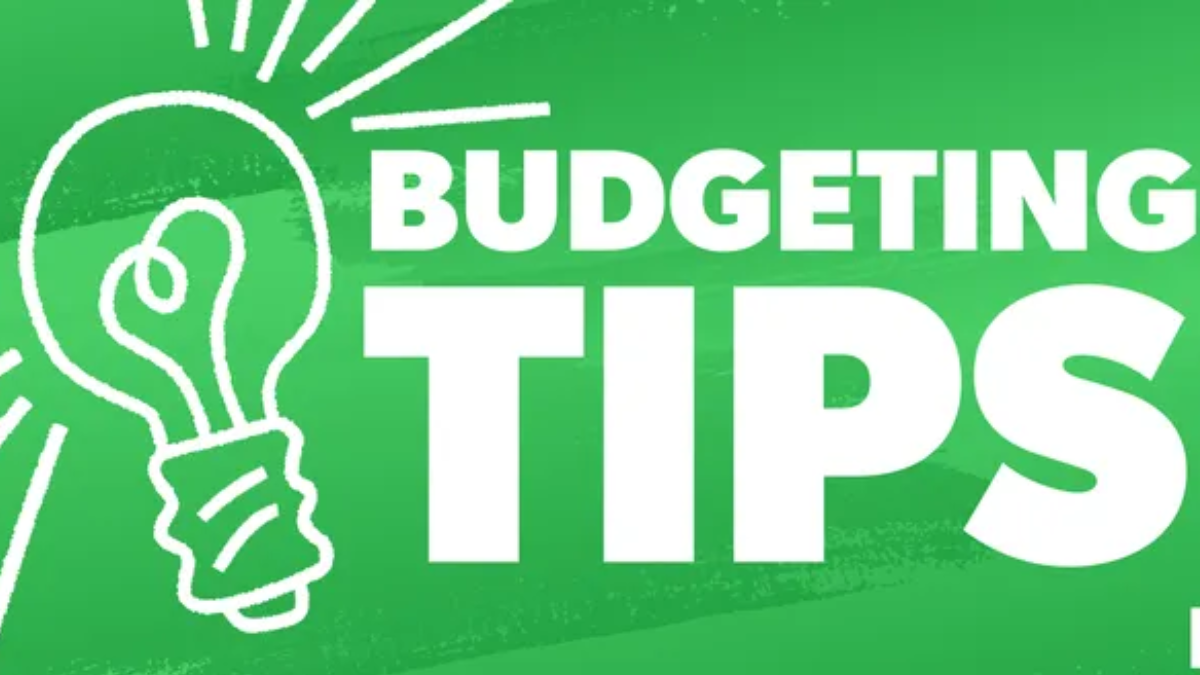Creating and sticking to a budget is one of the most powerful steps you can take toward financial freedom. Budgeting helps you manage your money better, avoid debt, build savings, and plan for the future.
In this ultimate guide, we’ll break down the top 10 budgeting tips every individual should know to take control of their finances and make their money work for them.
Why Budgeting Is Important
Budgeting isn’t just about restricting your spending—it’s about empowering yourself to make smart decisions with your money. Whether you’re trying to pay off debt, save for a vacation, or invest in your future, budgeting helps you stay on track.
Benefits of Budgeting:
- Reduces financial stress
- Helps prioritize spending
- Builds healthy saving habits
- Avoids unnecessary debt
- Makes financial goals achievable
Top 10 Budgeting Tips To Master Your Money
1. Set Clear Financial Goals
Why It Matters:
Budgeting without goals is like driving without a destination. When you define your financial goals—short-term, medium-term, and long-term—you give purpose to your budget.
Examples of Financial Goals:
- Short-term: Save ₹50,000 for a vacation in 6 months
- Medium-term: Pay off credit card debt within 2 years
- Long-term: Build a retirement corpus of ₹1 crore
Tip: Use SMART goals (Specific, Measurable, Achievable, Relevant, Time-bound) for better clarity and motivation.
2. Track Your Income and Expenses

Why It Matters:
You can’t manage what you don’t measure. Knowing how much you earn vs. how much you spend helps you create a realistic and sustainable budget.
How To Do It:
- Maintain a spreadsheet or use apps like Walnut, Money View, or YNAB
- Categorize expenses (food, bills, transport, entertainment, etc.)
- Review monthly to find spending leaks
3. Use the 50/30/20 Budgeting Rule
What It Is:
A popular rule that divides your income into:
- 50% Needs (rent, utilities, groceries)
- 30% Wants (dining out, shopping, Netflix)
- 20% Savings/Debt Repayment
Why It Works:
It ensures balance—covering essentials, enjoying life, and building financial security.
Tip: Adjust the ratio based on your lifestyle. For example, aim for 30% savings if you’re aggressively working toward a goal.
4. Automate Your Savings
Why It Matters:
Paying yourself first ensures you’re consistently saving, not just what’s left at the end of the month.
How To Do It:
- Set up auto-debit to transfer money to savings accounts or SIPs
- Use recurring deposits (RDs) or digital wallets for micro-savings
- Automate credit card payments to avoid late fees
5. Differentiate Between Needs and Wants
Why It Matters:
Impulse spending on “wants” often derails a budget. Learning to distinguish the two helps you control unnecessary expenses.
Examples:
- Need: Grocery shopping
- Want: Eating out at a restaurant
- Need: Mobile bill
- Want: Buying the latest smartphone
Tip: Wait 24 hours before making any unplanned purchase—often, the urge fades.
6. Create and Stick to a Monthly Budget
Steps to Build a Monthly Budget:
- Calculate total monthly income (salary, freelance, rental, etc.)
- List all fixed and variable expenses
- Allocate money to savings and debt
- Track actual spending vs. planned
Useful Tools:
- Google Sheets or Excel
- Budgeting apps: GoodBudget, Mint, YNAB
7. Build an Emergency Fund
Why It Matters:
An emergency fund prevents you from derailing your budget when life throws a curveball.
Goal:
Save 3–6 months’ worth of essential expenses.
Where To Save:
- High-yield savings account
- Liquid mutual funds
- Short-term fixed deposits
8. Review and Adjust Your Budget Regularly
Why It’s Important:
Your income, expenses, and goals can change over time. Regularly reviewing your budget helps you adapt.
Review Frequency:
- Monthly check-in for small adjustments
- Quarterly review for bigger life changes (new job, marriage, baby, etc.)
Tip: Use graphs or pie charts to visualize where your money goes.
9. Cut Down On Recurring Expenses
Examples of Recurring Costs:
- Subscriptions (OTT, magazines, gym)
- Monthly EMI on gadgets or furniture
- Automatic app purchases
Tips to Cut Down:
- Cancel unused subscriptions
- Switch to prepaid plans or cheaper alternatives
- Negotiate bills (rent, internet, insurance)
10. Use the Envelope System (Cash Budgeting)

What It Is:
Allocate cash for different expense categories and store them in envelopes (physical or digital).
Categories Might Include:
- Groceries
- Fuel
- Dining out
- Shopping
Why It Works:
Once the envelope is empty, you stop spending in that category. It encourages discipline and prevents overspending.
Bonus Tip: Reward Yourself For Staying On Budget
Don’t forget to celebrate small wins! Reached your savings goal? Cleared a credit card bill? Treat yourself modestly. It reinforces good behavior and keeps you motivated.
Common Budgeting Mistakes to Avoid
- Ignoring irregular expenses (gifts, repairs)
- Setting unrealistic budgets
- Forgetting to save for emergencies
- Not involving your spouse or family in planning
- Giving up after one failed month
Budgeting for Different Life Stages
Students:
Focus on saving allowances, avoiding credit traps, and learning basic money skills.
Young Professionals:
Create a solid foundation with emergency funds, insurance, and SIPs.
Families:
Budget for childcare, school, housing, and future goals like college funds.
Retirees:
Shift focus to spending control, medical budgeting, and maintaining a passive income.
Useful Apps and Tools for Budgeting
India-Focused Budgeting Apps:
- Money View
- Walnut
- Monefy
- ET Money
Global Apps:
- YNAB (You Need A Budget)
- PocketGuard
- Mint
- EveryDollar
Choose one that syncs with your bank accounts and offers category-based insights.
Also Read: The Ultimate Guide To Financial Planning For Beginners
Conclusion
Mastering your budget is one of the most empowering financial habits you can build. It doesn’t require a finance degree or a six-figure salary—just awareness, consistency, and a willingness to take control of your money.
These top 10 budgeting tips are simple, actionable, and highly effective for anyone at any stage of life. By setting clear goals, tracking spending, automating savings, and staying flexible, you’ll not only take control of your finances but also build a strong financial future.
Remember: Every rupee saved is a step closer to freedom.
FAQs
1. How do I start budgeting if I’ve never done it before?
Start by tracking your income and expenses for a month. Then use that data to create your first monthly budget using the 50/30/20 rule.
2. How much of my income should I save?
Aim to save at least 20% of your income. If that’s difficult, start with 5–10% and increase gradually.
3. What should I do if I constantly go over budget?
Review your categories—some might be underestimated. Identify overspending habits and adjust. Also, consider using cash envelopes for better control.
4. Can I still enjoy life while sticking to a budget?
Absolutely! Budgeting is about balance. Allocate a portion for “fun” or entertainment so you don’t feel restricted.
5. Is it necessary to use budgeting apps?
Not at all. While apps can simplify tracking, a pen-and-paper journal or Excel sheet can be just as effective if you stay consistent.




